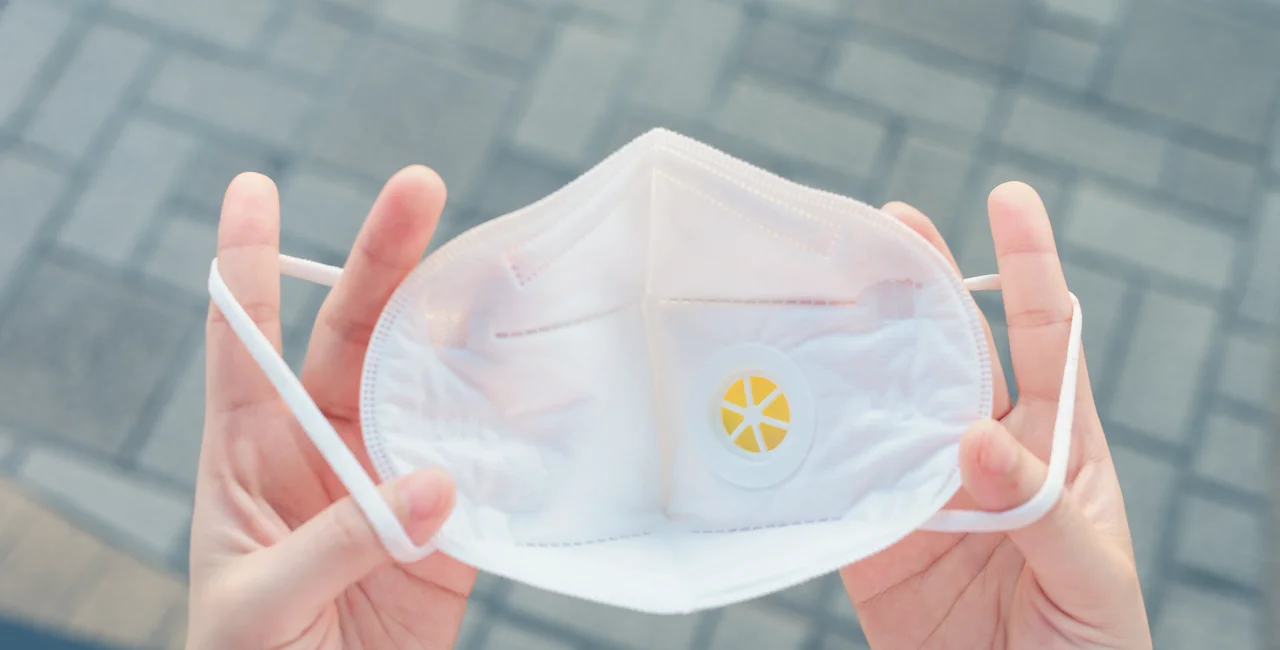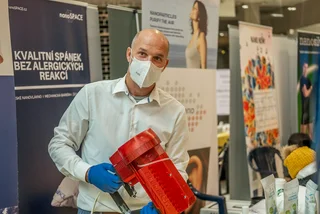Prime Minister Andrej Babiš said that the Czech government is considering making it mandatory to wear respirators in shops and public transport, instead of just cloth masks. This is due to the faster spread of the British mutation of coronavirus.
Separately, at a press conference following a meeting of the Central Crisis Staff, Deputy Prime Minister Jan Hamáček said that emergency measures should continue and that so far vaccinations were running smoothly.
The Chamber of Deputies, the lower house of Czech Parliament, is set to vote Thursday on extending the state of emergency to Feb.21. Hamáček says the extension is needed and measures against COVID-19 should not be relaxed. The Czech Republic is currently on the fifth and highest level of PES restrictions against spread of coronavirus.
In connection with the spread of the British coronavirus mutation, Germany and Austria are introducing the obligation to wear respirators or surgical masks in public transport and shops. According to Babiš, the Czech Republic has enough of them in stock. The question is their price and the threat that their price will rise with higher demand.
Babiš said a reduction in the price by the state could mean that producers would rather export them.
Health Minister Jan Blatný also praised the idea, saying that from an epidemiological point of view it would be beneficial.
Babiš also said the Czech Republic should concentrate of tracking down the contacts of the infected with the British coronavirus mutation preferentially, but it will naturally keep tracing all novel coronavirus cases.
Hamáček, who is also chairman of the Central Crisis Staff, pointed out that respirators are much more expensive than basic cloth masks.
“It would certainly mean greater protection for our citizens against the spread of the virus. It is necessary to clarify the issue of their availability on the Czech market in sufficient quantity and quality,” he told news server iDnes.cz.
Unlike cloth mouthpieces, respirators cannot be made on their own. They are labeled according to the effectiveness of protection against viruses and bacteria. Typically, type FFP2 is used, which promises approximately 95 percent protection. Type FFP2 or higher is now required, for example, during a visit to hospitals or nursing homes.
At the press conference, Hamáček said the Czech Republic cannot do without a state of emergency, as its end would mean the loosening of all anti-epidemic measures.
“Current measures must be continued. Without them, it is not possible to reduce the pressure on the healthcare system,” Hamáček said.
“All members [of Parliament] know this, too; a vote against the extension of the state of emergency would be a blow to health professionals. It would bring about the loosening of all regulations, the departure of soldiers from homes for the elderly and the departure of assistance from hospitals,” Hamáček added.
The situation in the surrounding states also proves the need to maintain measures, he added. “Germany is taking the situation very seriously. The same in Austria, Poland, Slovakia and France. On the contrary, all these states are tightening measures” he said. Hospitals must first see reduced number of COVID-19 patients so that they can gradually return to standard care and delayed operations, he added.
The Central Crisis Staff also dealt with the situation of crematoria. Hamáček said their capacities are now sufficient. There had been a crisis with lack of space in some regions, especially in northern Moravia, but is has gotten better.
Bodies are being moved to areas with more capacity, and a ban in allowing bodies from neighboring countries to be cremated in the Czech Republic has also eased the pressure on capacity.
At the last week’s meeting Hamáček said there are stocks of syringes for vaccination in the Czech Republic for 65 days. However, the stocks of individual regions are uneven. If there is a lack of material in any of them, they will get a loan from a teaching hospital.
A final version of the updated table of measures linked to the PES system should be ready today. Minister of Health Minister Blatný plans to present it to the government on Friday.












 Reading time: 3 minutes
Reading time: 3 minutes 






























